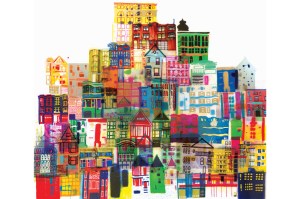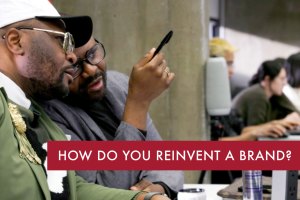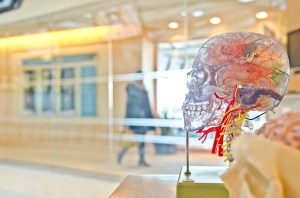Year: 2019
-
Science & Tech
So you think he can dance?
Snowball the dancing cockatoo is the subject of a study by Radcliffe fellow and Tufts neuroscientist Ani Patel, who suggests the bird’s ability to move in time to music is connected to the way humans groove to a beat.
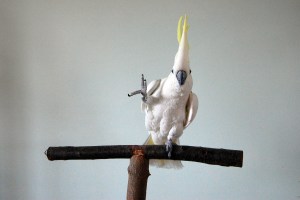
-
Campus & Community
One thing to change: Less driving, more thriving
Lisa Randall, the Frank B. Baird Jr. Professor of Science, remembers when one shut-down street brought Harvard’s campus together, and wonders how that could apply to cities.
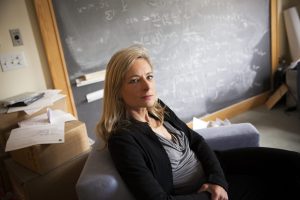
-
Health
Debunking old hypotheses
Biology Professor Cassandra G. Extavour debunks old hypotheses about form and function on insect eggs using new big-data tool
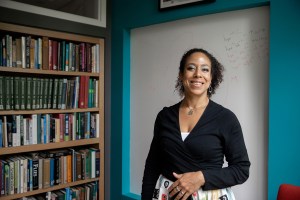
-
Arts & Culture
A new way to read
Stephanie Burt’s new book is a guide to understanding an art form that for many feels difficult to access. She talks about creating a “travel guide” for poetry.
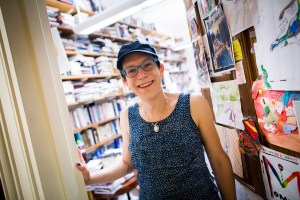
-
Health
The vegans are coming, and we might join them
Led by vegetarian tech companies looking to mimic and replace meat and other animal products, going vegan is on the verge of going mainstream.
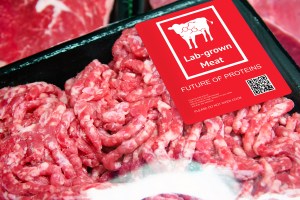
-
Campus & Community
The simple joy of pets
Phillips Brooks House program brings dogs to a local rehab center to interact with residents.
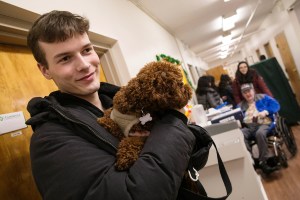
-
Science & Tech
Single letter speaks volumes
Scientists have used an optimized version of the CRISPR-Cas9 gene-editing system to prevent hearing loss in so-called Beethoven mice, which carry a genetic mutation that causes profound hearing loss in humans and mice alike.
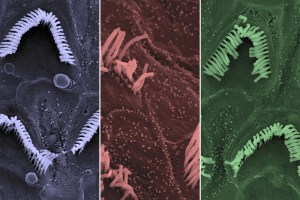
-
Science & Tech
Combing out a tangled problem
A new technique speeds creation of nanowire devices, boosting research into what’s happening inside cells.
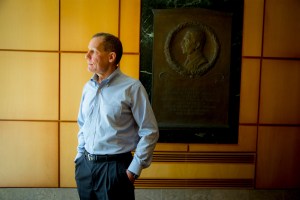
-
Nation & World
Water, life, and climate change in South Asia
In his latest book, Sunil Amrith, the Mehra Family Professor of South Asian Studies and chair of the Department of South Asian Studies, describes the ageless link between water and prosperity in South Asia and examines the new challenges of climate change.
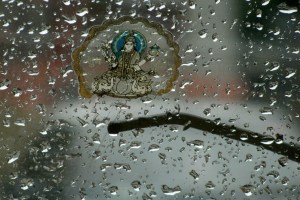
-
Campus & Community
John H. Shaw steps down
John H. Shaw, the Harry C. Dudley Professor of Structural and Economic Geology, steps down at the end of June, having served as chair of the Department of Earth and Planetary Sciences since 2006.
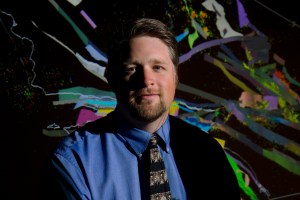
-
Science & Tech
Oceans away
A new NASA-funded program will study water worlds and environments to understand the limits of life as part of the search for life on other planets.
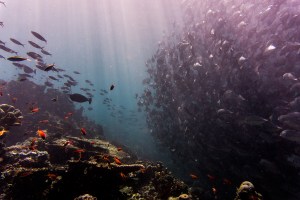
-
Campus & Community
Executive education with a soul
For the second year in a row, Harvard Divinity School offers an executive course that draws on history and religious traditions around the world to help participants become agents of change.
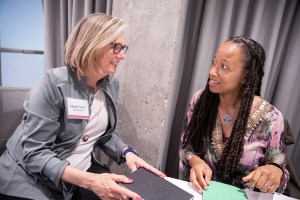
-
Campus & Community
One thing to change: Think more like children
Abraham “Avi” Loeb, the Frank B. Baird Jr. Professor of Science, argues that academia shouldn’t just be about proving theories, but about exploration.

-
Nation & World
Stonewall then and now
Harvard scholars reflect on the history and legacy of the 1969 Stonewall demonstrations that triggered the contemporary battle for LGBT rights in America.
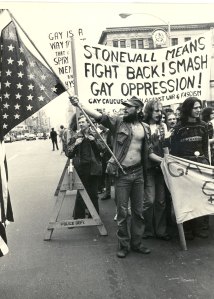
-
Science & Tech
Speeding up single-cell genomics research
Harvard researchers have devised a time-saving method that makes it possible to speed up the process of profiling gene regulation in tens of thousands of individual human cells in a single day, a development that promises to boost genomics research.
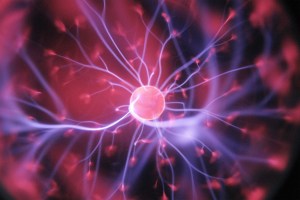
-
Campus & Community
In search of Quentin Compson
A group of William Faulkner fans visited a plaque on the Anderson Bridge honoring his best-known character.
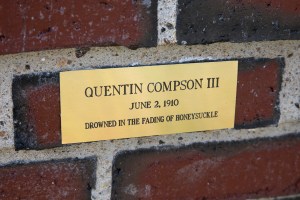
-
Campus & Community
Chicken soup for the soul
Harvard Divinity School graduate Israel Buffardi experienced an unconventional journey to his Unitarian Universalist ministry.
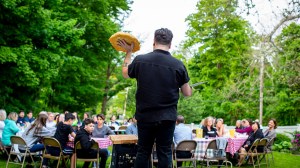
-
Health
Fears arise that new federal fetal-tissue restrictions will hobble a ‘workhorse’ of research
With the Trump administration halting fetal tissue research at two prominent scientific institutions and new plans to review such research elsewhere, Harvard Medical School Dean George Daley discussed the importance of research using these tissues, which would otherwise be discarded, in creating vaccines and treatments and enhancing our understanding of human biology.
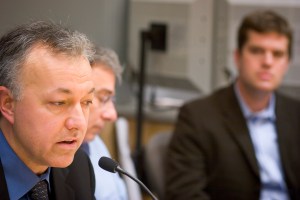
-
Science & Tech
The RoboBee flies solo
Several decades in the making, the Harvard Microbiotics Lab’s RoboBee made its first solo flight.
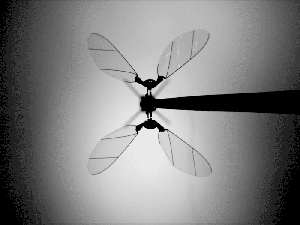
-
Science & Tech
Leave those calluses alone
A running-studies pioneer takes a look at walking, with and without shoes, and gives calluses a thumbs-up.
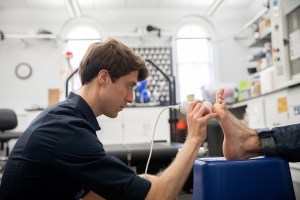
-
Nation & World
Halting urban violence seen as a key to ending poverty
Harvard Kennedy School researcher and former Obama official Thomas Abt’s new book offers a concrete prescription for bringing peace to the streets.
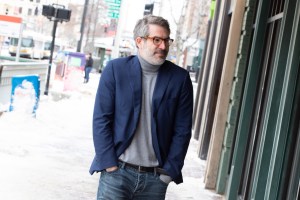
-
Campus & Community
Welcoming the summer solstice
People of all ages gathered at Harvard to celebrate the longest day of the year with performances, arts and crafts, and more.
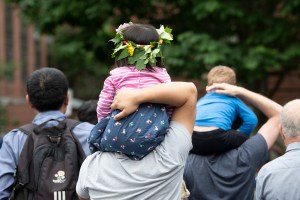
-
Campus & Community
The lessons he learned from the class he taught
Dennis Norman, faculty chair of the Harvard University Native American Program, is retiring at the end of June. In a Gazette profile, he highlights the course he has taught at the Kennedy School that sends students to work in Native American communities.
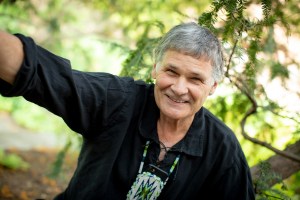
-
Health
Study finds performance-enhancing bacteria in human microbiome
A single microbe accumulating in the microbiome of elite athletes can enhance exercise performance in mice, paving the way to highly validated performance-enhancing probiotics.
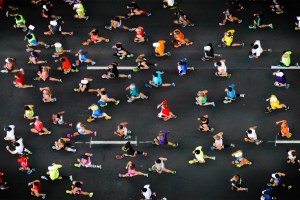
-
Arts & Culture
Boston Ballet dances the night away
The Boston Ballet company spends an afternoon and evening shooting a promotional video in the forest-like setting of Arnold Arboretum.
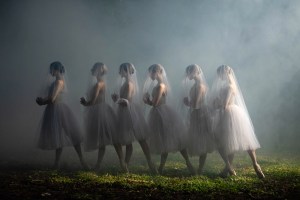
-
Campus & Community
One thing to change: Anecdotes aren’t data
Steven Pinker, the Johnstone Family Professor of Psychology, points to a number of instances where the use of anecdotes over data creates a false narrative.
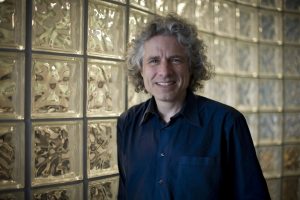
-
Science & Tech
The little robot that could
The iRobot Corp. announced its acquisition of Root Robotics, Inc., whose educational Root coding robot got its start as a summer research project at the Wyss Institute for Biologically Inspired Engineering at Harvard University in 2011
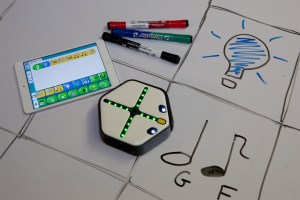
-
Health
Is your home making you sick?
In a recent online report, researchers from the Harvard T.H. Chan School of Public Health have compiled 36 expert tips to help make your home a healthier place to live. Happily, most of them are quick fixes that can have a major impact on well-being.
